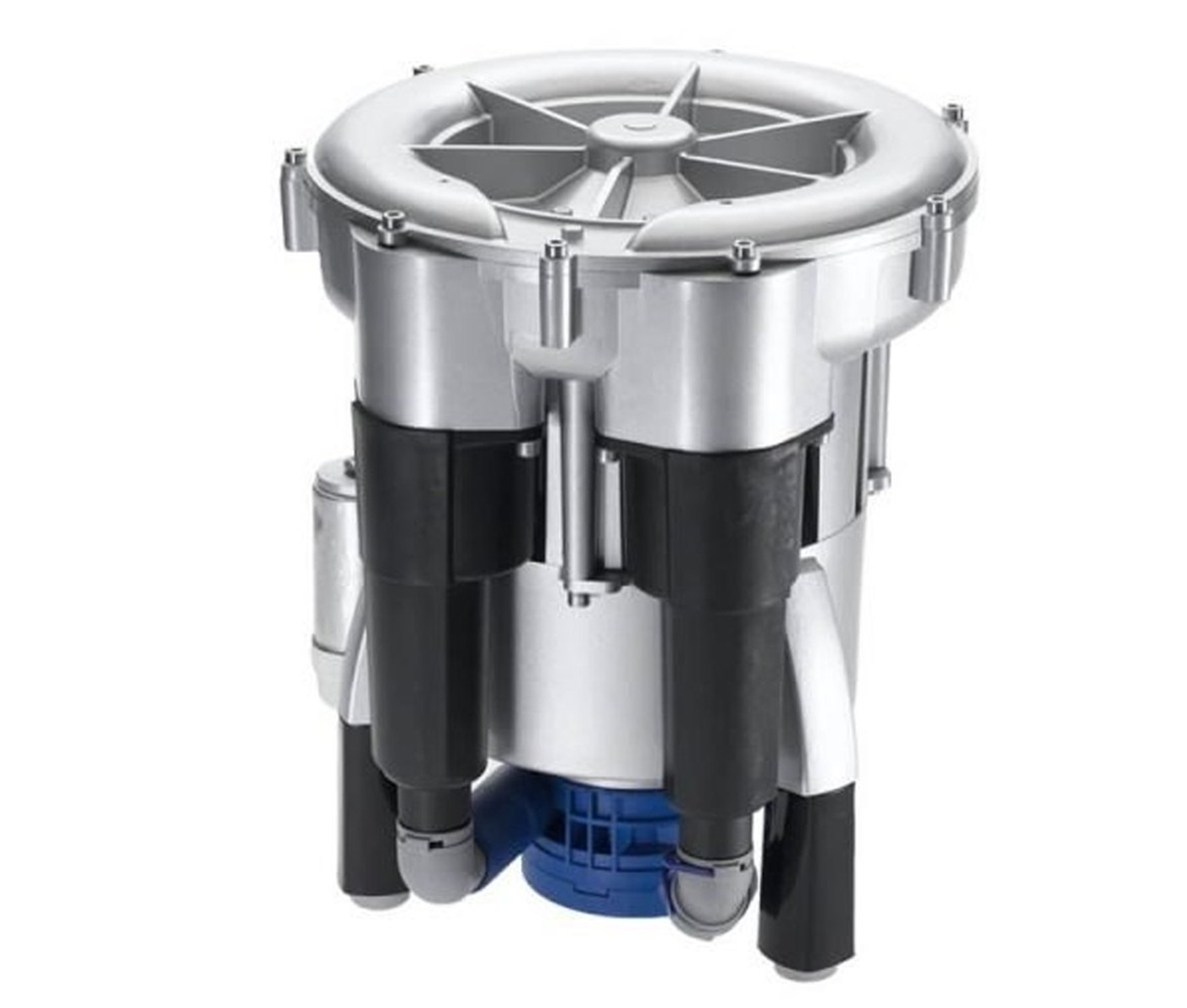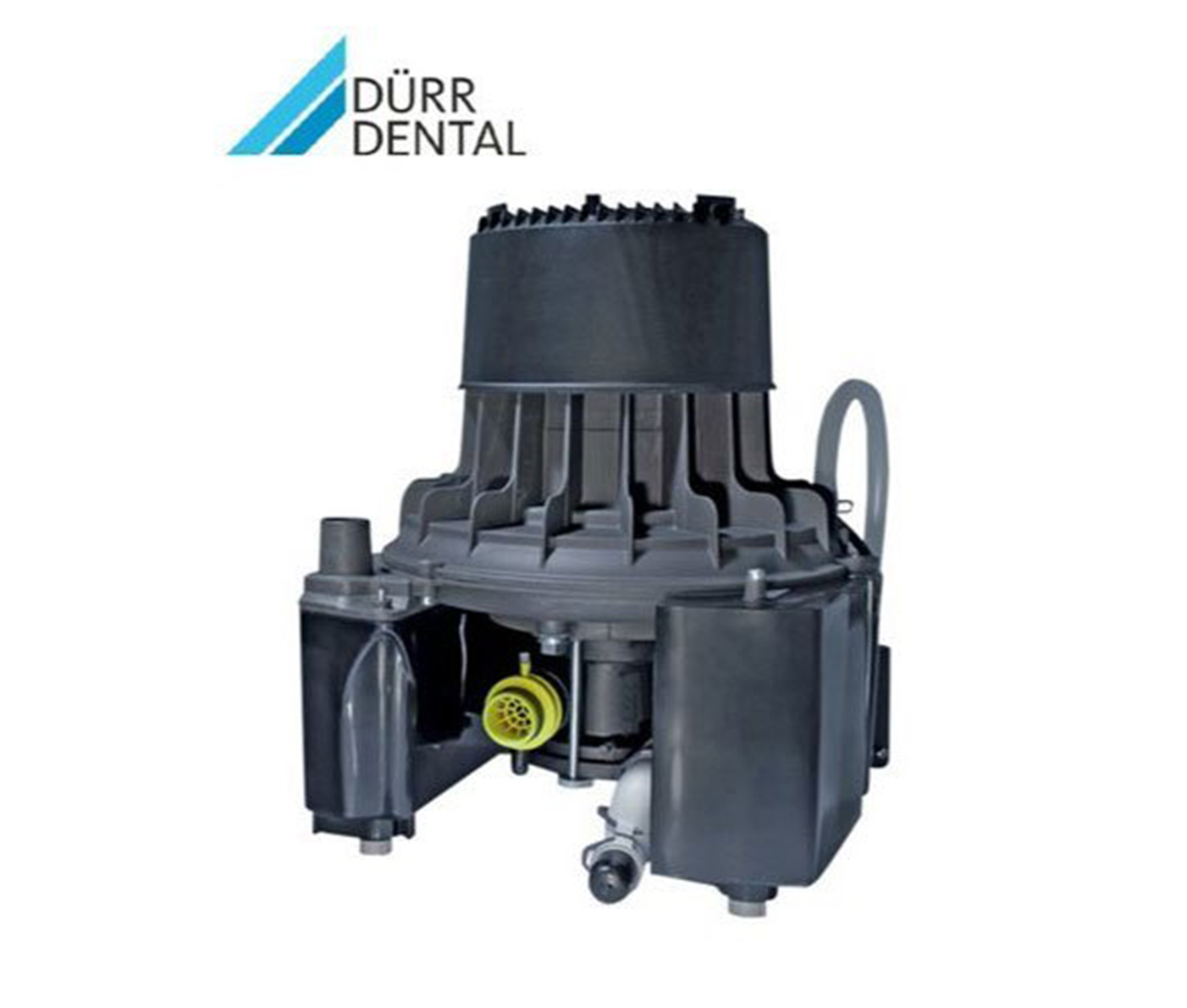A Dental Suction System plays a crucial role in maintaining a clean and safe environment during dental procedures by efficiently removing saliva, blood, and other debris. It ensures better visibility for dentists and enhances patient comfort by keeping the oral cavity dry. Modern dental suction systems come with advanced features that reduce noise, improve suction efficiency, and prevent cross-contamination, making them essential in every dental clinic.
Types of Dental Suction
We provide a range of high-quality Dental Suction designed to meet the diverse needs of modern dental practices. Our offerings include:


The VS 250 S incorporates the latest and successful Dürr Dental suction technology: For the first time it combined in one unit the suction machine and the automatic separation process.
Vacum generation and the simultaneous separation of the mixture of secretions and solids are both carried out on the robust drive shaft. This technology made a name as "Two-in-one". The integrated water pump draws off the fluid continuously. And the VS 250 S manages even large amounts of fluids without difficulty.
The high level of economy and operational reliability are the result of the common drive unit that also takes up scarcely any room which is why the VS 250 S is so compact. This development not only eliminated the need for additional separation units and other components in the treatments unit, but also simplified at the same time the planning and installation of the entire practices suction system.
Features
- Continuous high suction power of 250 l/min at the cannula
- Robust VS suction technology integrates separation into the suction unit
- Guarantees high reliability
- High suction performance within seconds
- Flexible installation by custom-made program & functional accessories

| Model Name/Number |
VS 300 S
|
| Brand |
Durr Dental
|
| Voltage |
230 V
|
| Frequency |
50/60 Hz
|
| Noise |
approx. 63 - 65,with housing approx. 54 - 56 dB
|
| Power Consumption |
0.58/0.8 Kw
|
| Weight |
12.5,with housing 20
|
| Dimensions |
37 x 31 x 31 cm,51 x 36 x 36 (with housing)
|
| Current Consumption |
2.9/3.7 A
|
| Speed |
2,850 rpm
|
| Vacuum. |
180 mbar
|
| Cyclic Duration Factor |
100 %
|
| Max. Fluid Flow Rate (l/min) |
4
|
VS 300 S
Operators = Number of treatment stations with simultaneous operation
Rooms = Number of stations that can be connected with simultaneity factor 60%
Description:-
Certain activities, such as preparing teeth, removing fillings, crowns and bridges, or removing plaque, require the use of high-speed instruments. However, these instruments not only make work easier, but also entail risks: effective cooling with water is necessary to prevent damage to the pulp-dentine area. In the process, spray mist is formed, which is not homogeneous, but consists of particles, powder as well as splashes and droplets of different sizes containing cooling water, saliva, blood and microorganisms. This mixture presents a high risk of infection.

